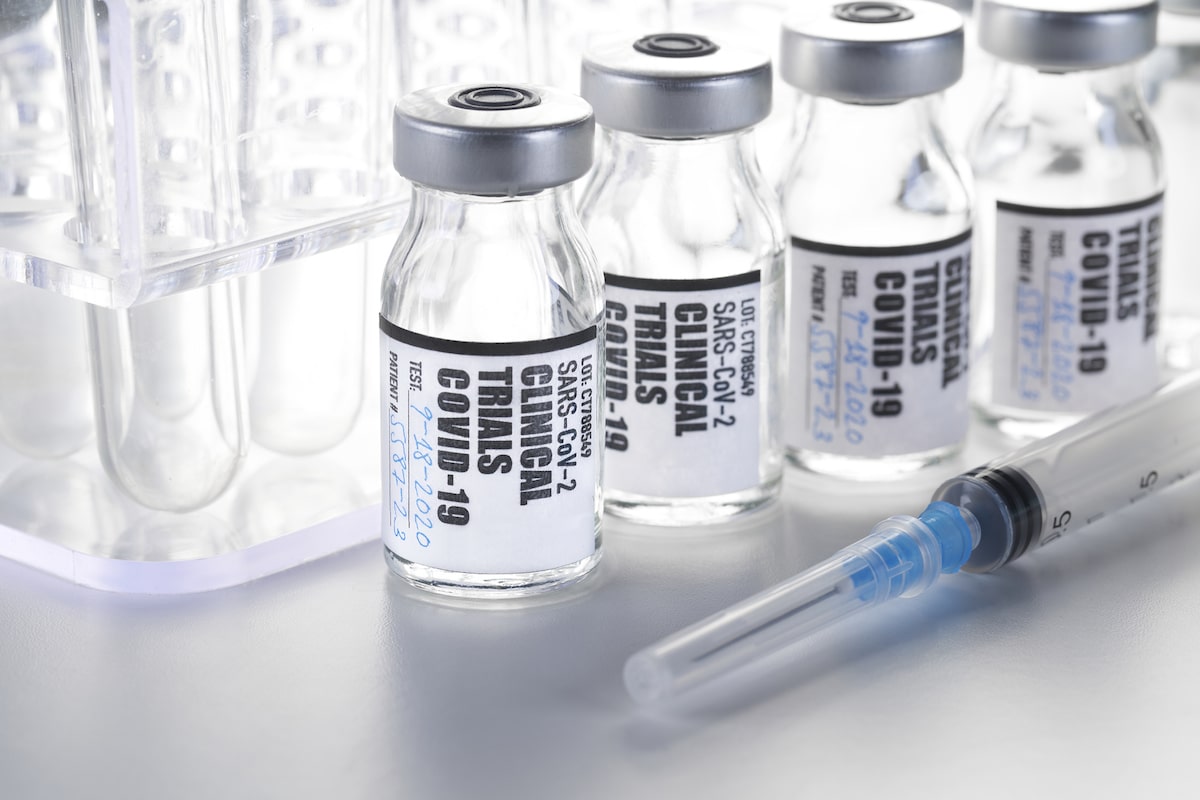<< Back
Physician-Scientist: Expediting Vaccine Development Should Not Compromise Safety

September 02, 2020
As desperate as the world is to conquer the deadly COVID-19 virus, a significant number of Americans have reportedly said they will not get a vaccine whenever it becomes available.
According to a Yahoo News poll, 58 percent said they would not get any of the vaccines currently in development by dozens of pharmaceutical companies. Many fear acceleration of the trial process, spurred by the pandemic and the government’s Operation Warp Speed response, means approved vaccines may not be safe.
Dr. Sope Olugbile, a physician-scientist and hematology/oncology specialist at Hartford HealthCare with extensive experience in immunology research and vaccine development, said there have certainly been changes in the process but none will compromise safety.
“Expediting vaccine development should not compromise safety; it can only lead to wastage of resources which, in the case of a pandemic, may be a reasonable price to pay,” he said. “This is largely because the safety measures in place for vaccines are much stricter than for medicines used to treat diseases as the vaccine target population is healthy people who should not be put at risk of significant side effects.”
To illustrate his point, Dr. Olugbile described the typical development cycle for new drugs. Companies, he said, only manufacture drugs for the next trial phase after going through data from the prior phase to keep costs down. While this prevents waste, it extends the time needed for the drug to become commercially available.
“In the case of COVID-19, companies, in conjunction with government agencies, are producing vaccine materials for future trials even before reviewing data from prior trials,” Dr. Olugbile said. “This ‘accelerated development’ saves time but may lead to waste of materials should ongoing trials show that the vaccine is unsafe or ineffective.
“The FDA (Food and Drug Administration), through an objective and open process, therefore, will ensure that safety and efficacy are proven beyond reasonable doubts before any approval.”
At each phase of vaccine development, safety measures ensure the medication studied does not harm recipients while researchers meet the phase’s goals, he continued. During early phase development, in phases I and II, they examine side effects experienced by tens to hundreds who volunteer to try the medication. They also determine optimum dose and frequency in addition to checking if the vaccine elicits the desirable immune response.
Phase III involves thousands of volunteers helping researchers assess medication efficacy and collect safety data in much larger and broader population. A handful of promising COVID-19 vaccine candidates are now in Phase III trials with a few more expected soon.
“Safety measures in place in Europe and the United States will ensure that all proper protocols are being followed,” Dr. Olugbile noted.
Once the FDA approves a vaccine, he said “there should not be any significant risk to the general population beyond soreness at the injection site, fatigue and fever, which are common with other vaccines already in general use.”
As high-profile people such as composer Andrew Lloyd Webber and Russian President Vladimir Putin roll up sleeves to receive COVID-19 vaccines, in addition to reports indicating that Russia and China are already immunizing their citizens against the virus, Dr. Olugbile said scientists across the globe remain skeptical about vaccine effectiveness without published data.
“There is no peer-reviewed, published data on late-phase trials proving that they are safe and effective,” he said. “The only data we have from the Chinese vaccine candidates is that it is safe and induces immune response in few people. There is no confirmation that they are protective. The United States, Europe and other countries are going through the standard process, which takes longer but should provide irrefutable proof about safety and efficacy prior to widespread deployment of the vaccine.”
As seasonal flu season threatens to coincide with COVID-19’s second wave this fall in what’s being dubbed a “twindemic,” Dr. Olugbile urges everyone to get a flu vaccine as we await approval of the COVID-19 vaccine.
“There is concern that outbreaks of both may lead to more people getting seriously ill,” he said. “The good thing is that the precautions we have in place for COVID-19 – social distancing, hand-washing and avoiding contact with frail elderly — may help us lessen the flu outbreak.”
Flu vaccines are developed in the U.S. each year to target flu strains the World Health Organization identified in the southern hemisphere the prior flu season. While sometimes less effective than hoped, the vaccine’s goal is to prevent severe flu infection that leads to hospitalization and death.
“We have extensive data that provide proof the annual flu vaccine reduces mortality and hospitalization, especially among elderly and frail populations. It is always reasonable to get a flu vaccine every year,” he said.
Dr. Sope Olugbile is a physician-scientist and hematology/oncology specialist at Hartford Hospital and Windham Hospital. To make an appointment, call 860.249.6291.
Hartford HealthCare organizes many flu vaccine clinics each year. For the latest information on where you can get a vaccine, click here.
Not feeling well? Call your healthcare provider for guidance and try to avoid going directly to an emergency department or urgent care center, as this could increase the chances of the disease spreading.
Click here to schedule a virtual visit with a Hartford HealthCare-GoHealth Urgent Care provider.
Stay with Hartford HealthCare for everything you need to know about the coronavirus threat. Click here for information updated daily.
Listen and subscribe to Hartford HealthCare’s More Life series on Apple Podcasts by clicking here.
Stay fit. Stay happy. Stay healthy. And keep on top of COVID-19 with Hartford HealthCare’s daily text alerts. Subscribe by texting MoreLife to 31996.